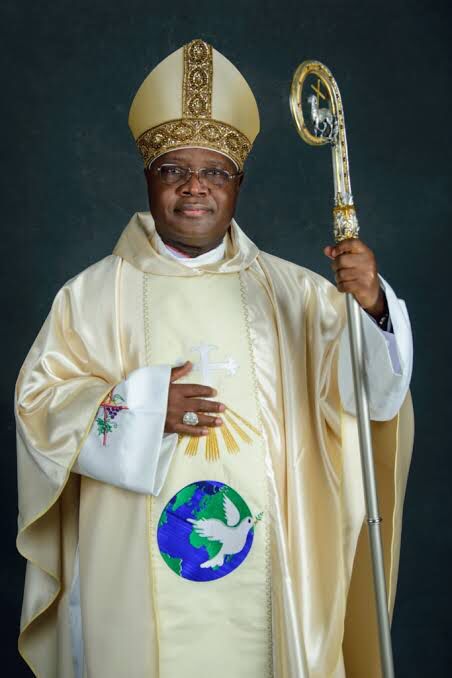The propaganda of the kings of the House of Austria (1516-1700) said that the Hispanic Monarchy did not make pacts with Muslim powers, but rather waged war on them, as in the battle of Lepanto (1571). But then what was a certain Brother Salvador de Almia doing traveling from Jerusalem to Spain in 1659 “as ambassador of the emir of Arabia”? Who was that emir? And how was such a mission received in Madrid?
How we explore in our project DIPLOINMED, Yes, there were agreements and embassies between Muslim powers and the House of Austria. As the previous example shows, for this purpose the kings used mediators such as the Spanish Franciscans who were in the Holy Land, who knew both places and were respected and discreet.
The embassy of the aforementioned brother Salvador was in fact well received at the court of Philip IV (1621-1665). It was even published in several relationsthe predecessor of newspapers, where a single piece of news was spread on a loose sheet.
As for the “emir” of Arabia, he did not exist under that title. But we can find him in other sources also mentioned as “prince of Gaza.” Thanks to that it has been possible to correctly identify him: he was Hussein Pasha (حسن باشا), sanjak-bey (governor) of Gaza between 1644 and 1660, of the Ridwan dynasty.
Search for allies in Palestine
Although Palestine was in the Ottoman Empire, throughout the 17th century the weak court of Istanbul was unable to directly govern the region.. Meanwhile, some local dynasties had become strong and almost monopolized power. The Ridwans were the main lineage and had turned Gaza into a prosperous city from their palace at Qasr al-Basha (later known as Fort Napoleon because he stayed there a century later, in 1799).
So what interest could that prince of Gaza and the king of Spain have in maintaining friendly relations? For Hussein Pasha and the Ridwans, the priority was to gain allies against the Ottoman sultans, who wanted to regain their direct power over Palestine. Therefore, the governor of Gaza was friendly with the French consul in Jerusalem. Furthermore, he defended the Franciscan friars of the Holy Places, who wrote to the Pope and Philip IV high praise for his protector and friend.
This explains why Hussein Pasha took advantage of the return of Brother Salvador de Almia to Spain in 1658 to appoint him his ambassador. He sent him with a letter in Spanish for Philip IV and a rich gift: luxurious fabrics, knives set with gems, two unicorn glasses (we assume ivory) and fifty bezoar stones (digestive stones of mammals used as antidotes). The governor needed allies against Istanbul and the Franciscans were interested in keeping his benefactor in power.
And what did Philip IV get from this relationship?
Overcoming crisis in Spain
The Spanish king also defended the mission of the Franciscans in the Holy Land. Besides, This embassy had great propaganda value in a period of dynastic and military crisis.
The first crisis was due to the fact that the king was a fifty-year-old man who had been without an heir to the throne for more than ten years. When Prince Philip Prospero was born in 1657, great hopes were placed in him, but he was a sickly child.
The arrival of the Gaza embassy was used to revive these hopes. Thus, the relations published in Seville, Valencia and Granada stated that the prince of Gaza was a great astrologer. For this reason, he had “known through the stars the great fortune of Prince Don Felipe Prospero, and the domination of new kingdoms.” In these versions, the mysterious eastern emir looked like a Wizard King and the prince a new Baby Jesus. With this, the Spanish vassals received a message of hope in the greatness of their future king. In the end the hope was proven to be unrealistic, as Felipe Prospero died in 1661.


Cover of the Report of the embassy and present that the Prince of Arabia sent to King Felipe Quarto Nuestro Senor, with Father Salvador de Almia. Image from the collections of the National Library of Spain, CC BY
Cover of the Report of the embassy and present that the Prince of Arabia sent to King Felipe Quarto Nuestro Senor, with Father Salvador de Almia.
Image from the collections of the National Library of Spain, CC BY
In addition to this dynastic crisis, there was a military crisis: in those months Philip IV was negotiating with Louis XIV of France the Peace of the Pyrenees (signed on November 7, 1659). This treaty recognized the Spanish defeat after decades of war. And in fact it is considered the symbol of the end of the European hegemony of the Austrians..
Late reaction
In such a context, the reception of this exotic embassy showed the public that their king was still great and influential.
However, although Philip IV could see this new alliance with propagandistic interest, he had more urgent problems. That’s why it took more than two years! in sending his own ambassador back to Palestine, the Franciscan Alonso Campeño.
At least the Crown was quick to publicize the mission (February 1662) in the New Gazette, recently founded as the first official newspaper in Spanish history. The gazette published a copy of the royal letter to Hussein Pasha, considered “Prince of Arabia and Pasha of Gaza.” He also detailed the gifts sent, more luxurious than those received: gold and coral jewelry, watches and even cutlasses (short, curved sabers edged on only one side), even though the pope prohibited sending offensive weapons to infidels.
However, Hussein Pasha’s worst omens were about to come true. Campeño came to present his embassy and deliver the gifts in mid-1662. However, Hussein Pasha was arrested and imprisoned by the Ottoman authorities shortly after. He died executed in Istanbul in 1662-63. In just two decades, the Ridwan dynasty network was dismantled. The Ottoman government was able to appoint governors without worrying more about the great local lineages and there was no longer direct contact between Gaza and Madrid.
The interesting thing about this situation is that there was room for agreement between these two powers despite religious and cultural differences. The alliance with a Muslim prince even had propaganda value in Spain in 1660 because a basic condition was met: Hussein Pasha recognized the greatness of Philip IV. This appeared dominant over Islam and received positive astrological judgments that enjoyed credibility, despite coming from Muslims.
At the same time, there is greater political realism compared to previous times. The king no longer promised help against the Ottomans or fueled crusade plans. He even gave cutlasses to a Muslim governor. The monarchy of Philip IV could do little more in the eastern Mediterranean, economically and militarily incapable of meeting such distant plans.![]()
Ruben Gonzalez Cuerva, Senior Scientist in Modern History, Center for Human and Social Sciences (CCHS – CSIC)
This article was originally published on The Conversation. Read the original.




